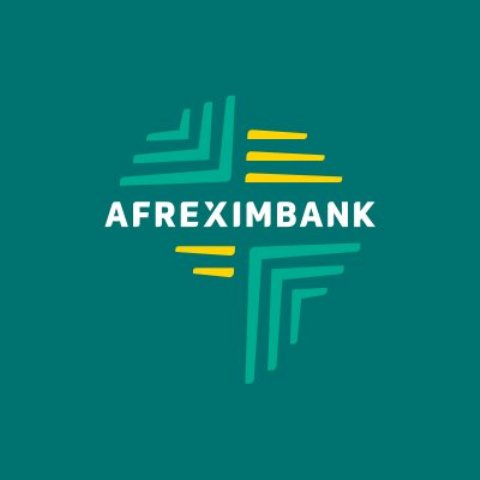Afreximbank Hosts PPC Steering Committee to Advance Africa's Cotton Sector
Mrs. Awani underlined that Afreximbank, as a core member of the PPC, is spearheading initiatives to support the full integration of African countries into the global cotton value chain.

- Country:
- Egypt Arab Rep
Headline:
Afreximbank Leads Drive for Industrialisation in Africa’s Cotton-Textile-Garment Sector
In a significant step towards transforming Africa’s cotton industry, the African Export-Import Bank (Afreximbank) hosted a high-level, two-day meeting of the Steering Committee of the Partenariat pour le Coton (PPC) from April 28 to 29, 2025, at its Cairo headquarters. The PPC is a global collaborative platform dedicated to promoting sustainable value addition within the cotton-textile-garment (CTG) value chain, especially in developing countries, with a current emphasis on the “C4+” countries—Benin, Burkina Faso, Chad, Mali, and Côte d'Ivoire.
The initiative reflects Afreximbank’s strong commitment to unlocking the economic potential of Africa’s cotton sector by driving value addition, job creation, and sustainable industrial development across the continent.
Unleashing Africa’s Cotton Potential
Delivering the opening remarks, Mrs. Kanayo Awani, Executive Vice President for Intra-African Trade and Export Development at Afreximbank, highlighted the critical role cotton plays in the economies of many African countries. In some nations, the cotton sector accounts for between 45 to 60 percent of gross domestic product (GDP) and foreign exchange earnings.
However, despite the strategic importance of the crop, Mrs. Awani acknowledged that the textile and garment manufacturing sector in several C4+ nations remains underdeveloped. A recent study commissioned by the PPC Steering Committee revealed that production yields remain low, and processing capacities are severely limited. The region also grapples with inadequate infrastructure, limited access to modern technologies, and vulnerability to global market fluctuations and climate change.
Transforming the Value Chain Through Strategic Partnerships
Mrs. Awani underlined that Afreximbank, as a core member of the PPC, is spearheading initiatives to support the full integration of African countries into the global cotton value chain. By transitioning from raw cotton exports to higher-value products such as textiles and apparel, the Bank aims to support broader development goals, including the African Union’s Agenda 2063 and the United Nations Sustainable Development Goals (SDGs).
To achieve this, Afreximbank is mobilising both financial and technical resources. The Bank is offering a suite of support tools, including:
-
Project preparation funding
-
Tailored financing solutions
-
Debt and equity financing
-
Export advisory and insurance services
-
Support for SMEs in the cotton value chain
-
Digital platforms to enhance market access
-
Trade facilitation and investment promotion initiatives
“Through our active participation in the Partenariat pour le Coton, we reaffirm our commitment to supporting Africa’s drive for sustainable industrialisation and local value addition,” stated Mrs. Awani. “By working alongside partners, we are helping unlock critical investments, strengthening technical capacity, and promoting sustainable practices across the cotton sector.”
Steering Committee Focuses on Investment and Policy Coordination
The Steering Committee meeting concentrated on identifying concrete strategies to mobilise capital for cotton sector transformation in Africa. Mrs. Awani emphasized that improving the competitiveness of African cotton on the global stage requires sustained investment and robust policy coordination across multiple sectors, including agriculture, manufacturing, trade, and infrastructure.
Echoing this sentiment, Mr. Jean-Marie Paugam, Deputy Director-General of the World Trade Organisation (WTO) and Chairperson of the Steering Committee, expressed hope that the committee’s discussions would lead to tangible outcomes in the industrialisation and local processing of cotton in C4+ countries. He noted that the results of the meeting would be presented to WTO members at the next formal discussion on cotton, scheduled for May 14, 2025, which will address a broad range of challenges faced by cotton-producing developing countries.
Trust Fund Agreement Reinforcement and Key Stakeholder Participation
One of the highlights of the meeting was the formal signing of an amendment to the Trust Fund Agreement between Afreximbank and the United Nations Industrial Development Organization (UNIDO). This amendment strengthens Afreximbank’s US$80,230 grant to fund a critical baseline study for the cotton-to-textile value chain under the PPC. The study is being conducted within a cooperative framework supported by WTO and FIFA, aiming to provide the data foundation for strategic interventions.
Key stakeholders in attendance included:
-
Mr. Jean-Marie Paugam, Deputy Director-General of the WTO
-
Mr. Gunther Berger, Managing Director at UNIDO
-
Ms. Alimatou Shadiya Assouman, Minister of Trade and Industry of Benin
-
Mr. Eric Trachtenberg, Executive Director of the International Cotton Advisory Committee (ICAC)
-
Representatives from technical partners such as Gherzi Textile Organization and Otto Group Scan-Thor Group
These organizations, along with other members of the PPC—including the International Labour Organisation (ILO), International Trade Centre (ITC), Better Cotton, and the governments of the C4+ countries—form a robust network committed to sustainable transformation of the cotton value chain.
Looking Forward: A Cotton Revolution for Africa
The PPC Steering Committee meeting marked a pivotal moment in Africa’s journey toward building a globally competitive and sustainable CTG sector. Through multi-stakeholder collaboration, strategic financing, and an unwavering commitment to local value addition, Afreximbank and its partners are laying the groundwork for a cotton revolution in Africa.
This vision aligns with broader continental goals to industrialize, reduce poverty, and foster inclusive economic transformation through regional integration and trade development. If fully realized, these initiatives promise not just economic returns but also social equity and environmental sustainability for generations to come.










